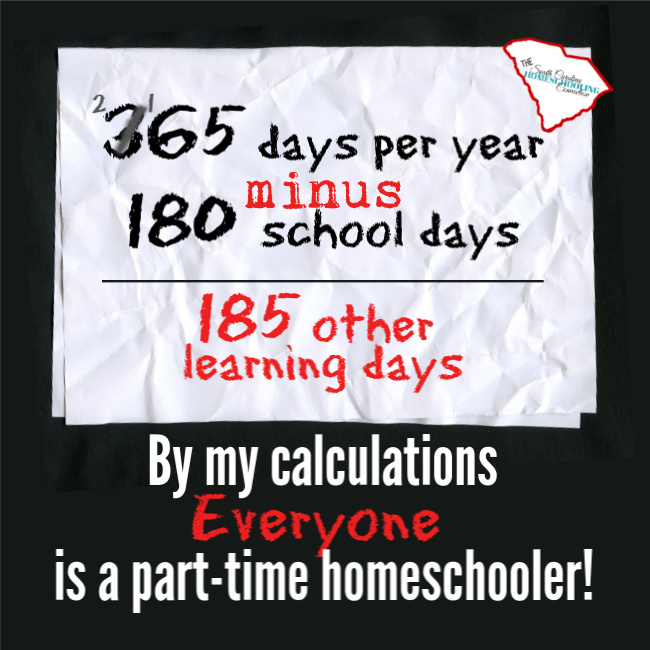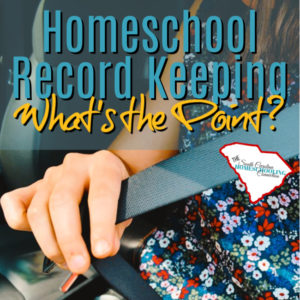Public schools are now closed due to social distancing quartine policies. So, what happens with our corona virus homeschool attendance days? I’ve seen several discussions recently about how all this affects our 180-day requirement.
We are living in very unusual times. Previously planned events and activities are all canceling and our schedules are turned upside down. We’re trying to figure out how to find normalcy in such great uncertainty.
Do we write these days off then? Or do we keep chugging along in our lessons?
Homeschool Attendance Days
Fewer Days: If the public schools are veering off the 180-day attendance requirement, can homeschoolers count fewer days also?
I suppose technically, if the legislature modifies the school days for the year, then homeschoolers would also get included in this. Although I’m not sure that the law would specify that since homeschoolers are already excempt from compulsory attendance schedules. What will happen with the public school days? That’s all a big “IF” right now.
Let’s acknowledge that our school year is going to be significantly different than we had planned. Especially those who have public school students now at home with them too.
However, learning happens 365 days a year. It’s actually very difficult to go a whole day without learning anything. We just have to document 180 of them. And the point of your record-keeping is so you can see the progress.
We all suffer from CRS (Can’t Remember Squat), so it’s very helpful to write down what your students have been doing. Those A-HA moments when they demonstrate a skill you didn’t even teach them. You can look back over the days and weeks to see that they have been learning all along. It helps keep you going, when you think you’ve just been wasting time.
- There’s an overwhelming amount of free resources available right now. Pick and choose some of them that interest you. Settle into a new normal.
- Resist the urge to structure all this “free time”. Let your students figure out how to utilize the time. THAT will be a lifelong skill that will be forever useful to them. Education is partly about learning about the world around us…but, also it’s about discovering our unique abilities and interests that fit into that world.
- You can still document unstructured play time. It counts as part of your learning activities of the day too. What your teens are doing can count as a high school credit.
Homeschoolers GET TO count all these learning days as school days. So, you should be able to get your 180 days even if it isn’t required.
–> Read these quick tips from homeschool experts: How to Homeschool During Coronavirus <–
More Days: If we’re counting all these days and finish this year’s 180 days, can homeschoolers start counting toward the 180 days for next year?
So, the way it works is there are 180 mandatory school days in a year–where kids ages 5-17 are under compulsory attendance to report to the local school. Your homeschool registration for 2019-2020 school year gives you exemption from your child going to the local school this year. It also means you can set your days anytime you want to, not following the school’s attendance calendar.
But, we said before that there are 365 learning days in a year. And many of us continue on in our curriculum materials beyond the 180 required days. That is ok, because the documentation is for your purposes anyway so you can see your child’s progress over time.
We’re all aiming to do an equivalent to the minimum requirements of compulsory attendance. Many of us are actually aiming to exceed that–including the overall total learning days.
But, what is your purpose in documenting toward the next 180 days? Are you aiming to move your child up a grade then? Or get so far ahead that you could theoretically take a year off?
Getting ahead on attendance days: We can’t game the system by getting ahead on attendance days. If your child were to re-enroll in a traditional school, your stocked up days won’t go forward to next year’s attendance. They would still fall in line with the attendance requirements anyway.
There’s some leeway in counting days during the summer toward your homeschool attendance before the compulsory attendance actually starts in the fall. You might want to store up a few extra days:
- If you know you’re going to busy later with planning co-op classes or field trips for your support group.
- If you are moving or going to have a baby or you know you get bronchitis every year.
- If life gets busy and you know you’re prone to slacking off on the record-keeping,
Skipping ahead a gradelevel: If you’re aiming to get your child to skip ahead, there’s no need to “prove” that with additional attendance days when you register again for 2020-2021. You just indicate on the registration form what grade level your child is in. Although, I would still recommend that if your child is working above grade level, you still indicate the grade they belong age-wise. There is always time to jump ahead later, if they wish to graduate early. But, I don’t see the need to rush thru childhood in order to get into college and adulthood any earlier.
I know we’re not following the schools, but we need to speak their “language” of attendance and grades. It’s part of normalizing homeschooling when we can demonstrate this is an equivalent education (or better even). Part of that means we need to keep our attendance days in a given compulsory attendance year.
Homeschoolers GET TO count all these learning days as school days. So, you could continue documenting “extra days” above the 180 required for this year.
Our corona virus homeschool attendance days are learning days. Count them!
Read more about What’s the Point of Homeschool Record-Keeping:





 Honors Framework Guideline
Honors Framework Guideline Homeschool Record-Keeping For High Schoolers in South Carolina
Homeschool Record-Keeping For High Schoolers in South Carolina How Long Do You Keep Homeschool Records?
How Long Do You Keep Homeschool Records? How do Unschoolers Document Learning?
How do Unschoolers Document Learning?




Speak Your Mind